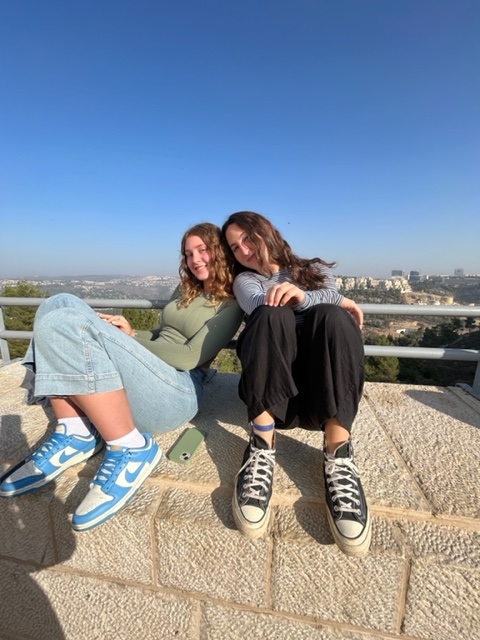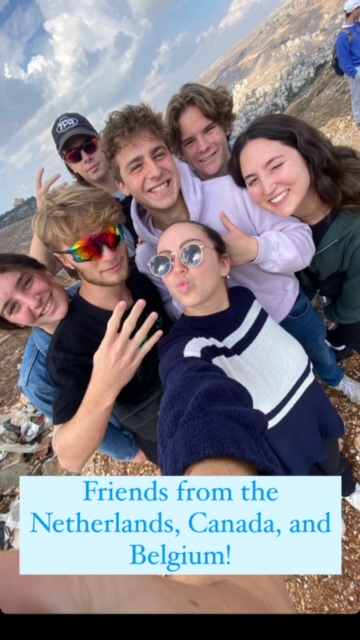As I’ve mentioned in a previous blog, my Gap Year program is through a youth movement called Young Judaea, and I have attended/worked at one of their summer camps for the past 10 years. Because I have been in the YJ community for such a long time, I know many people that have been on Year Course. After hearing about other people’s experiences on this program for years, I had assumptions of what it would be like. Once I arrived, I realized my expectations were very different from the reality of this program.
My expectation was that I would be surrounded by peers from my youth movement/program that are all from North America. This is going to sound ridiculous, but I’m going to be completely honest; since I knew about this program and many of its past participants, I didn’t feel the need to do much research on the exact details of the program. Because of this, I didn’t realize our classes would be mixed with teens from all over the world including the Netherlands, Australia, Belgium, Venezuela, Mexico, Uruguay, and more. I also have the opportunity to take classes with Israelis that are on a pre-army program. My classes are filled with dialogue about how our different culture and upbringing affects who we are and our opinions. It has been so interesting to be able to discuss different topics with people from all over the world ranging from their connection to Judaism to their cultural norms.
These interactions started as eye-opening conversations, but they turned into friendships that will last a lifetime. Spending more and more time with people from different parts of the world has helped me realize the importance of patience and understanding. We all speak different languages, but our classes are held in English. Because it is not their first language, my international friends occasionally have a hard time conveying their opinion, and I have noticed some native English speakers getting frustrated. This has made me more mindful of how difficult it must be for my international friends to have complex discussions in their non-native language. I make sure to remind myself and others to be patient, and I help when I can by translating into Hebrew; a multilingual person often, and conveniently, only remembers a word in the language they aren’t speaking at that moment. Additionally, it takes understanding and respect to be able to highlight what brings us together while also discussing our differences. It has been an amazing experience connecting with people from so many different backgrounds, and I am so grateful to be on a program that has an international aspect, although I didn’t even know it when I signed up.



